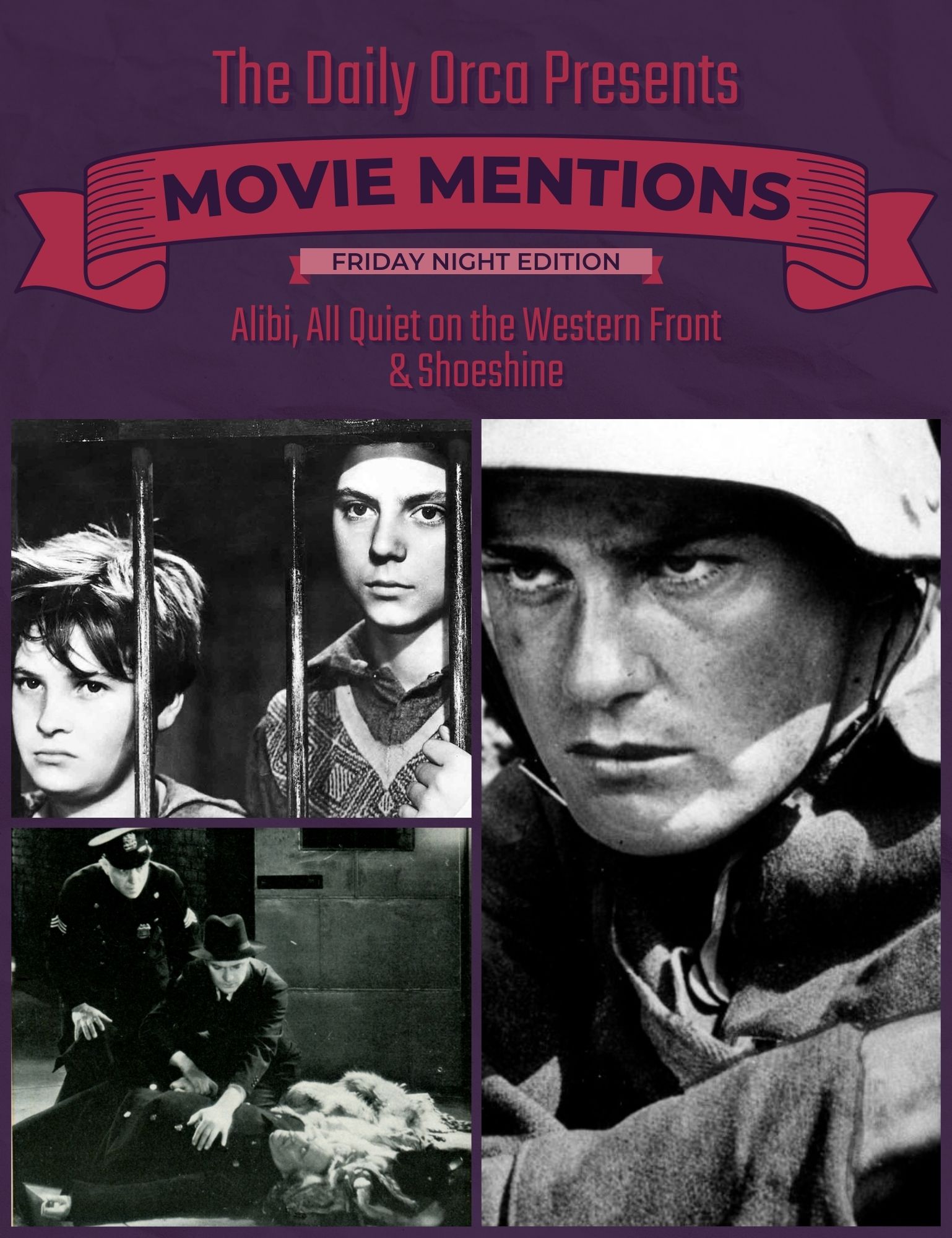Movie Mentions Friday Night Edition: Alibi, All Quiet on the Western Front & Shoeshine

Alibi (1929)
Directed by Roland West. 2/5 stars.
Ninety years later, it can be difficult to see how Alibi was ever considered for three Academy Awards, including Best Actor and Best Picture. The acting by Chester Morris, Mae Busch, and the rest of the cast is simply brutal, as is West’s stiff direction. Legend has it, the decision to change Alibi from a silent film to a talkie was made halfway through the production, and boy does it show. It’s an awkward watch, redeemed only by its bold depiction of police corruption and bonkers final scenes. That it was banned in Chicago for inciting “immorality, criminality, and depravity” might help its legend, but it can’t save this confounding Oscar nominee.
All Quiet on the Western Front (1930)
Directed by Lewis Milestone. 4.5/5 stars.
Adapted from Erich Maria Remarque’s novel of the same name, All Quiet on the Western Front is a brutally honest and depressingly prophetic film. The “western front” of the title may refer to the German lines of WWI, but the jingoism and fervor for war it so brilliantly depicts have remained alive and well in the nearly one hundred years since its release. Watching eager young men fall for patriotic vitriol, blindly enlist for combat, and then quickly realize their folly the moment they reach the trenches is a harrowing experience that isn’t easily shaken off. As the movie continues and the war drags on, the soldiers recruited as relief become younger and younger, until mere boys are dying on the front for a cause they have no concept of. When Paul (Lew Ayres) returns home on leave to find mere children being whipped into a frenzy, he can’t help but be honest with them, saying, “It’s dirty and painful to die for your country. When it comes to dying for your country, it’s better not to die at all! There are millions out there dying for their countries, and what good is it?” For his honesty, he’s called a coward and chased from the room. Sadly, this madness continues to this day all over the world.
Shoeshine (1946)
Directed by Vittorio De Sica. 4.5/5 stars.
De Sica’s bleak view of post-war Italy, specifically of the children left destitute by Mussolini’s failed authoritarian state, stands up as a monument to human spirit and fallibility. Shoeshine is both a pointed condemnation of lingering fascist beliefs held by Italians in positions of power and a harrowing tale of loyalty and betrayal under intolerable conditions. By melding untrained child actors (Franco Interlenghi and Rinaldo Smordoni) with existent locations, Shoeshine launches the first salvo in what would become the highly influential “Italian Neorealist” movement, a mode of filmmaking that would influence everything from the French New Wave a decade later to the New Hollywood movement ten years after that. Poverty, fascism, and an unforgiving legal system are all on trial, as De Sica artistically denounces them all with this brutally honest tale of a friendship put to the ultimate test.
